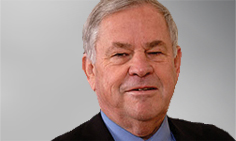WHETHER holding a small meeting or for your health’s sake, the hypothesis that standing is better than sitting remains intact.
Standing engages powerful muscle groups in your lower limbs to maintain your stance. This metabolic stimulus does good things to glucose metabolism, and there is evidence to back the claim that standing is a preventive measure against obesity and type 2 diabetes. There is further evidence from metabolic studies of the beneficial effects on lipids.
At the same time, management experts have begun to favour meetings where everyone stands or scrums — decisions occur faster and people concentrate better.
It may tickle your sense of humour then to wonder whether standing committees are the most efficacious. And should we have a chairperson?
Rachel Silverman, writing 2 years ago in the Wall Street Journal, put it this way: “Stand-up meetings are part of a fast-moving tech culture in which sitting has become synonymous with sloth. The object is to eliminate long-winded confabs where participants pontificate, play Angry Birds on their cell phones or tune out”.
Silverman, in turn, quotes Allen Bluedorn, a business professor at the University of Missouri, whose studies in 1998 found “that standing meetings were about a third shorter than sitting meetings and the quality of decision-making was about the same”.
How far should the push to abolish sitting take us? Professor Adrian Bauman, a health promotion academic at the University of Sydney, has a longstanding (yes!) interest in the beneficial effects of physical activity on health ranging from mental wellbeing through to the metabolic diseases. He walks everywhere (almost) and sees standing as a health benefit. But he is a scientist and preserves the true scientist’s scepticism.
Incidental exercise, the sort that we all engage in when going to catch the bus, climbing stairs, going shopping, attending to house cleaning and laundry, has much to commend it as it is within the reach of those who are time-poor and cannot afford the gym.
Bauman says: “We often inappropriately think that a single session of exercise will help us fight obesity, but it’s what we do with the other 23 and a half hours in our day that also counts. The two sides of the equation are energy intake and energy expenditure. You won’t expend much energy in terms of weight control if you are in a seat most of the day, even if you did your recommended 30 minutes of physical activity.”
Bauman’s analyses and reviews of over 200 scientific papers about physical activity and standing in particular show a consistent beneficial role, yet he refrains from supporting the enthusiasm of some who would make standing at work an occupational health and safety concern.
Stand-up desks (Winston Churchill was reputed to have used one) and similar refits of the workplace do not come cheaply and while Bauman accepts that in the long term such changes may bring health benefits, he says the evidence is currently not in.
How far should we take this insight? In a recent BMJ article, Dr Mohammed Ahmed Rashid from the University of Cambridge, UK, has suggested that general practice consultations might be crisper, healthier and better for everyone if more of the conversation was had standing up.
The obvious rejoinder is that the majority of patients would not be consulting a doctor if they felt well and like standing up. Hard to know — more experimentation please!
To quote Bauman again: “There’s nothing biologically or environmentally adaptive about sitting.
“As we develop knowledge, we realise that things might not be as we have always believed. Fifty years ago, we didn’t know about the harms of tobacco and high cholesterol. Now we realise that we need to have a prudent diet and not smoke if we want to have a healthy long life.”
Bauman says there is a very easy way to hedge your bets without too much effort — get up on your feet. “The simple act of standing — let alone walking — is beneficial."
Professor Stephen Leeder is the editor-in-chief of the MJA and professor of public health and community medicine at the University of Sydney.

 more_vert
more_vert
I am certainly taking it on board , however with discogemic pain it IS harder but it has now become the GOAL . Thanks !